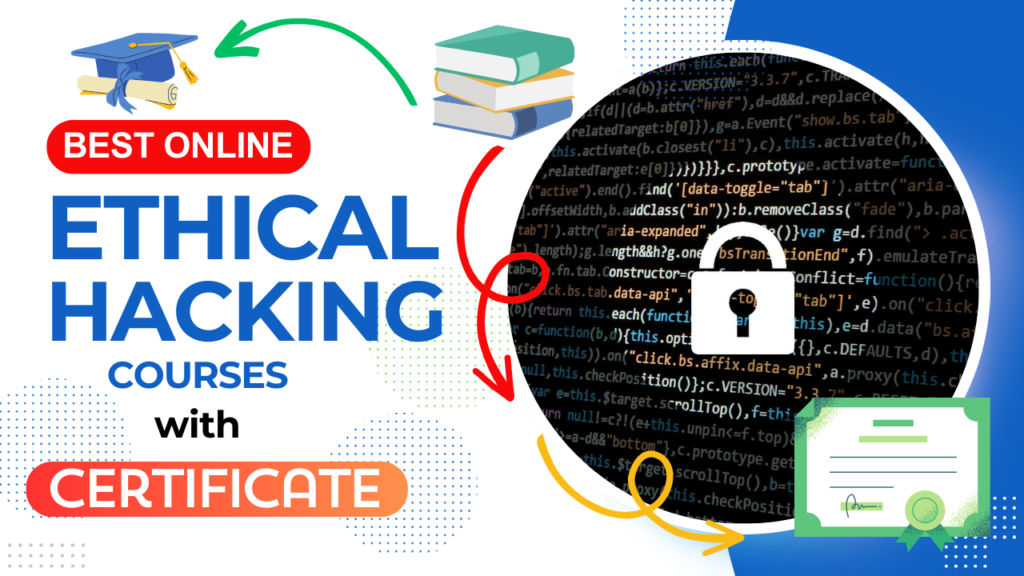Healthcare environments are inherently high-stress, fast-paced settings where emotions run high, and decisions carry significant weight. Within these demanding conditions, conflicts inevitably arise between staff members, departments, and even patients and their families. For nurse leaders, mastering conflict resolution isn’t just a valuable skill—it’s essential for maintaining a positive work environment and ensuring quality patient care. Fortunately, developing these critical leadership abilities has become more accessible through resources like a Free Healthcare Leadership Course that provides comprehensive training in nursing management and conflict resolution.
Understanding Common Sources of Conflict in Healthcare Environments
Nursing conflict management begins with recognizing the various sources of tension that commonly emerge in healthcare settings. These conflicts often stem from heavy workloads, staffing shortages, differing opinions on patient care approaches, communication breakdowns, and role ambiguity. The hierarchical nature of healthcare organizations can also create friction when roles and responsibilities overlap or when decision-making authority isn’t clearly defined.
Resource allocation presents another frequent source of conflict. When equipment, supplies, or staff time is limited, competing priorities can lead to disagreements between departments or individual team members. Additionally, the emotional toll of caring for critically ill patients can create stress that manifests as interpersonal conflict, making leadership communication in healthcare more challenging yet more crucial.
The complexity of modern healthcare delivery means that nurse managers must be equipped to handle these various conflict scenarios with skill and professionalism. This is where structured leadership training becomes invaluable, particularly through programs like the Diploma in Nursing Leadership and Care Management, which offers specialized modules on managing workplace disputes and fostering positive team dynamics.
Also Read: How to Learn Nursing Leadership Online: Free Nursing Leadership Course

Types of Conflicts Nurses Face Daily
Staff-to-Staff Conflicts
Interpersonal conflicts between nursing staff represent one of the most common challenges nurse leaders encounter. These disputes often arise from personality clashes, different work styles, generational differences, or disagreements about patient care protocols. Competition for promotions, scheduling preferences, or preferred assignments can also create tension between colleagues.
Effective nursing conflict management requires leaders to recognize that staff-to-staff conflicts if left unaddressed, can quickly escalate and negatively impact team morale and patient safety. The Free Healthcare Leadership Course content typically addresses these scenarios through practical case studies and evidence-based resolution strategies.
Nurse-Patient Conflicts
Patient care conflicts present unique challenges because they involve vulnerable individuals who may be experiencing fear, pain, or frustration. These conflicts can arise from miscommunication about treatment plans, cultural misunderstandings, unrealistic expectations, or disagreements about care decisions. Family members may also become involved, adding another layer of complexity to the situation.
Nurse leaders must balance patient advocacy with staff support while maintaining professional boundaries and ensuring quality care continues. Training programs, such as the Diploma in Nursing Leadership and Care Management, specifically address patient relationship management techniques that help nurses navigate these sensitive situations.
Interdepartmental Disagreements
Healthcare organisations rely on seamless collaboration among multiple departments, including nursing and medicine, pharmacy, laboratory services, and administration. When communication breaks down or priorities clash between departments, conflicts can emerge that affect patient care coordination and workflow efficiency.
These interdepartmental challenges require nurse leaders to develop strong negotiation and diplomacy skills. Understanding each department’s perspectives, constraints, and goals becomes essential for finding mutually acceptable solutions that prioritize patient welfare while respecting professional boundaries.
Also Read: Top Leadership, Management, and Communication Online Courses with Certificates for Self-development
The Critical Role of Nurse Leaders in Managing Conflict
Leading Through Communication and Empathy
Effective nurse leaders understand that conflict resolution begins with establishing themselves as approachable, fair, and trustworthy mediators. This requires developing exceptional communication skills that go beyond basic conversation to include active listening, emotional intelligence, and the ability to remain calm under pressure.
Effective leadership communication in healthcare requires a unique blend of clinical expertise, interpersonal skills, and emotional maturity. Leaders must be able to translate complex medical information, facilitate difficult conversations, and help conflicting parties find common ground. The Free Healthcare Leadership Course modules typically emphasize these communication fundamentals as core competencies for successful nurse managers.
Empathy plays an equally important role in conflict resolution. By genuinely understanding each party’s perspective, concerns, and motivations, nurse leaders can identify underlying issues that may not be immediately apparent. This deeper understanding often reveals solutions that address root causes rather than just surface-level symptoms.
Mediation and Neutral Facilitation
When conflicts arise, nurse leaders often serve as neutral mediators who can help opposing parties work toward resolution. This role requires maintaining objectivity while guiding discussions in productive directions. Effective mediation involves creating a safe space for open dialogue, ensuring that all voices are heard, and helping participants identify shared goals and interests.
The mediation process typically involves several key steps: gathering information from all parties, identifying the core issues at stake, facilitating direct communication between conflicting parties, exploring potential solutions, and establishing agreements for moving forward. Training programs, such as the Diploma in Nursing Leadership and Care Management, provide structured approaches to mediation that nurse leaders can apply in various conflict scenarios.
De-escalation Techniques
High-stress healthcare environments can quickly escalate minor disagreements into major disruptions that affect patient care and staff morale. Nurse leaders must master de-escalation techniques that can diffuse tension and redirect energy toward constructive problem-solving.
De-escalation often begins with recognizing early warning signs of conflict escalation, such as raised voices, defensive body language, or inflammatory language. Intervening early with calm, professional communication can prevent minor issues from becoming major problems. The Free Healthcare Leadership Course content often includes practical de-escalation strategies that nurse leaders can implement immediately in their work environments.

Essential Skills for Effective Conflict Resolution
Active Listening Mastery
Active listening represents perhaps the most fundamental skill for successful conflict resolution. This goes far beyond simply hearing what someone says—it involves fully engaging with the speaker, understanding both their words and underlying emotions, and responding in ways that demonstrate genuine comprehension and concern.
Effective active listening includes maintaining appropriate eye contact, avoiding interruptions, asking clarifying questions, and reflecting on what you’ve heard to ensure understanding. These techniques help conflicting parties feel heard and valued, which often reduces defensiveness and opens pathways for productive dialogue.
Nurse manager challenges often involve situations where individuals feel their concerns haven’t been properly acknowledged. By demonstrating strong active listening skills, leaders can begin resolving conflicts by simply ensuring everyone feels their perspective has been genuinely considered. The Diploma in Nursing Leadership and Care Management course emphasizes these fundamental communication skills as building blocks for more advanced conflict resolution techniques.
Neutral Facilitation Abilities
Maintaining neutrality while facilitating conflict resolution requires considerable skill and self-awareness. Nurse leaders must set aside personal biases, avoid taking sides, and focus on helping parties find mutually acceptable solutions rather than determining who is “right” or “wrong.”
Neutral facilitation involves asking open-ended questions that encourage reflection and problem-solving, summarizing different perspectives fairly, and guiding discussions toward constructive outcomes. This approach helps create an environment where conflicting parties can collaborate rather than compete against each other.
Emotional Control and Professionalism
Healthcare conflicts often involve high emotions, particularly when patient safety or professional reputation is at stake. Nurse leaders must maintain their composure and professionalism even when others around them are experiencing intense stress or frustration.
Emotional control doesn’t mean suppressing feelings or remaining cold and distant; it means managing them effectively. Instead, it involves managing one’s emotional responses in ways that support effective leadership and conflict resolution. This may include taking the time to process difficult situations before responding, seeking support from colleagues or supervisors when needed, and maintaining a focus on professional goals rather than personal reactions.
The Free Healthcare Leadership Course training typically addresses emotional intelligence and stress management as core competencies for healthcare leaders, recognising that these skills directly impact the effectiveness of conflict resolution.
Also Read: The Importance of Effective Communication in Nursing and Patient Care
Comprehensive Leadership Training for Modern Healthcare Challenges
Structured Learning Approaches
Professional development in nursing conflict management requires structured, evidence-based training that combines theoretical knowledge with practical application. Effective programs address the complexity of healthcare environments while providing nurse leaders with concrete tools and strategies that can be implemented immediately.
The Diploma in Nursing Leadership and Care Management offers a comprehensive curriculum that encompasses leadership communication, conflict de-escalation, and the management of patient and staff relationships. This integrated approach ensures that nurse leaders develop well-rounded skills that address the interconnected nature of healthcare leadership challenges.
Flexible Learning Options
Modern healthcare professionals require training options that accommodate their demanding work schedules and diverse learning preferences. Online programs that offer self-paced learning modules allow nurse leaders to develop their skills without compromising their clinical responsibilities or personal commitments.
The flexibility of programs like the Free Healthcare Leadership Course makes professional development accessible to nurses at all career stages, from new graduates preparing for leadership roles to experienced managers seeking to enhance their conflict resolution skills.
Evidence-Based Content
Quality leadership training programs base their content on current research and best practices from healthcare management and organisational psychology. This ensures that nurse leaders learn techniques that have been proven effective in real-world healthcare settings rather than theoretical approaches that may not translate to practical application.
The Diploma in Nursing Leadership and Care Management incorporates current evidence on conflict resolution, team dynamics, and healthcare leadership to provide training that directly addresses the challenges faced by nurse managers in contemporary healthcare environments.
Building Sustainable Conflict Resolution Systems
Creating Proactive Communication Cultures
Effective conflict resolution begins with prevention through the establishment of open, respectful communication cultures within healthcare teams. Nurse leaders play a crucial role in modelling positive communication behaviours and establishing norms that encourage early identification and resolution of potential conflicts.
This proactive approach involves regular team meetings, clear communication protocols, and systems for addressing concerns before they escalate into significant conflicts. Training programs, such as the Free Healthcare Leadership Course, often emphasise these preventive strategies as more effective than reactive conflict resolution approaches.
Implementing Fair and Consistent Processes
Healthcare teams require clear and fair processes for addressing conflicts that arise. These processes should be transparent, consistently applied, and designed to protect all parties, prioritising patient safety and quality care. Nurse leaders must be equipped to implement these processes effectively and ensure they serve their intended purpose.
Continuous Improvement and Learning
Conflict resolution skills require ongoing development and refinement. Healthcare environments continue to evolve, presenting new challenges that require adapted approaches. Effective nurse leaders commit to continuous learning and improvement in their conflict management abilities.
The Diploma in Nursing Leadership and Care Management supports this ongoing development by providing foundational knowledge that nurse leaders can build upon throughout their careers, along with strategies for staying current with evolving best practices in healthcare leadership.
Also Read: Understanding Vital Signs: A Beginner Nurse’s Guide
Conclusion: Mastering Leadership Through Continuous Development
Mastering conflict resolution represents an essential component of effective nursing leadership in today’s complex healthcare environment. The ability to navigate disagreements, facilitate productive discussions, and maintain positive team dynamics has a direct impact on both staff satisfaction and patient outcomes. These skills don’t develop naturally—they require dedicated training, practice, and ongoing refinement.
For nurse leaders committed to excellence in conflict management, structured professional development provides the foundation for success. The Free Healthcare Leadership Course approach provides accessible, comprehensive training that addresses the real-world challenges faced by healthcare leaders on a daily basis. Through programs like the Diploma in Nursing Leadership and Care Management, nurses can develop the communication skills, mediation techniques, and emotional intelligence necessary for effective leadership.
The investment in conflict resolution training pays dividends not only in improved workplace relationships but also in enhanced patient care quality, reduced staff turnover, and a more positive organisational culture. As healthcare continues to evolve and present new challenges, nurse leaders equipped with strong conflict resolution skills will be better positioned to guide their teams through change while maintaining focus on their core mission of providing excellent patient care.
Begin developing these essential leadership skills today through comprehensive training programs that offer the flexibility and depth needed for successful professional development in nursing leadership and conflict management.




